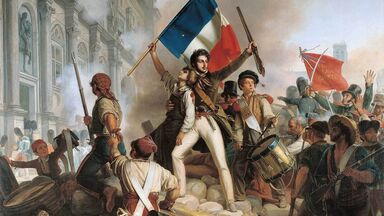At the Republican National Convention in 1920 he was not at first among the prominent candidates for president.
In September 1831 the party at a national convention in Baltimore nominated as its candidates for the presidency and vice-presidency William Wirt of Maryland and Amos Ellmaker (1787-1851) of Pennsylvania; and in the election of the following year it secured the seven electoral votes of the state of Vermont.
The opposition to Johnson within the party greatly increased during his term, and the Democratic national convention of 1840 adopted the unprecedented course of refusing to nominate anyone for the vice-presidency.
He proposed that the National Convention should itself, through its committees, direct all military movements and all branches of the government.
In politics he was originally a Republican, and was a delegate to the national convention of the party in 1880, and chairman of its finance committee.





